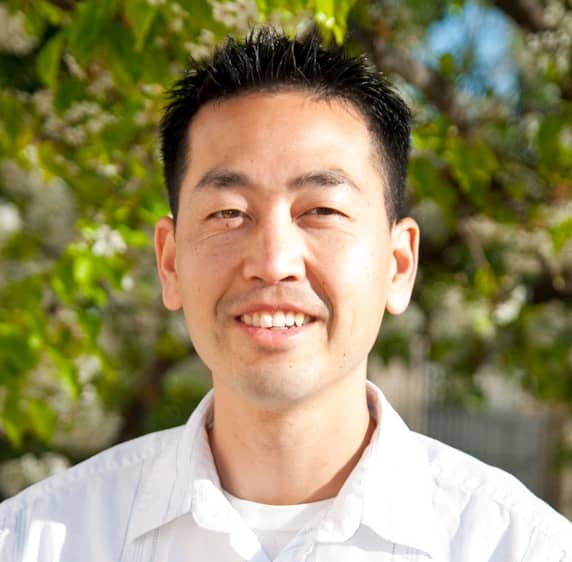
The Beginning of Knowledge
Jesus said “No” to people-pleasing by breaking down barriers in order to serve others. His perfect knowledge of human nature allowed him to see all people as sinners in need of saving and himself as the only One worthy to receive their worship. Jesus also teaches us to know ourselves rightly if we would say “No” to people-pleasing. Then most importantly, we must learn that “the fear of the LORD is the beginning of knowledge” (Proverbs 1:7a).
The Fear of the Lord (Luke 12:8-12)
The fear of the Lord means esteeming him as greater than everyone and everything else. Thus, Jesus said “No” to pleasing people because his foremost priority was to please his heavenly Father. At times, he said “No” to his family: “Who are my mother and my brothers?” and “No” to his hometown of Nazareth: “A prophet is not without honor, except in his hometown and among his relatives and in his own household.” Many times, he said “No” to the religious leaders whom he depicted as “whitewashed tombs, which outwardly appear beautiful, but within are full of dead people's bones and all uncleanness” (Matthew 23:27-28). The Pharisees were the ultimate people-pleasers who cared more for the approval of man than the approval of God (see John 12:42-43). Jesus even rebuked his disciple, Peter, for speaking foolish, people-pleasing words: “Get behind me, Satan! For you are not setting your mind on the things of God, but on the things of man” (Mark 8:33).
Application Insight: Your family and friends, community and religious leaders must not pressure you to do or say what does not honor God. In those situations, you are “not to please man, but to please God who tests our hearts” (1 Thess 2:4). “Choose this day whom you will serve” (Josh 24:15b). Jesus said “No” to people he loved, so he could say “Yes” to his Father in heaven. He said “No” to his earthly family because of his greater commitment to the family of God. He said “No” to Nazareth because there were many other towns and villages where the gospel had to be preached (Luke 4:43). He said “No” to the Pharisees because they were using religion to honor themselves. And he said “No” to Peter because his faithful disciple sought to keep him from the cross (Mark 8:31-32). Jesus refused to let mere man control his agenda (1:35-38; Luke 4:42-44) because he always did his Father’s will: “For I have come down from heaven, not to do my own will but the will of him who sent me” (John 6:38; see 8:28-29, 50). He could boldly say “No” to people because he always said “Yes” to his heavenly Father (see John 17:4).
Application Insight: The secret to overcoming the fear of man and saying “No” to people-pleasing is to fear the Lord (Proverbs 9:10). Obey him reverently and worship him joyfully. Fear the Lord and you will fear nothing else (29:25). Jesus warned his disciples, however, that if they aligned themselves with him, they would surely be hated: “If the world hates you, know that it has hated me before it hated you. . . . If they persecuted me, they will also persecute you” (John 15:18, 20b; see 16:2). Jesus reminds us that lost people are sinners in need of a Savior who will sin against us if we represent his name. Still, Jesus exhorts us not to hide the light of gospel truth (see Mark 4:21; Luke 8:16). I tell you, everyone who acknowledges me before men, the Son of Man also will acknowledge before the angels of God, but the one who denies me before men will be denied before the angels of God. And everyone who speaks a word against the Son of Man will be forgiven, but the one who blasphemes against the Holy Spirit will not be forgiven. And when they bring you before the synagogues and the rulers and the authorities, do not be anxious about how you should defend yourself or what you should say, for the Holy Spirit will teach you in that very hour what you ought to say (12:8-12). God’s Spirit gives us the words to say, God our Father defends us in the courts of heaven, and God our Savior has promised to never leave us nor forsake us: “And behold, I am with you always, to the end of the age” (Matthew 28:20b). So, when we fear the Lord, we need fear nothing and no one else.
Application Insight: Recognize your fear of man when it comes to evangelism. When was the last time you shared the good news of Jesus with another person? Perhaps you have hidden the light of Christ from others because you fear their rejection or disdain. Perhaps you fear looking foolish if they ask hard questions or label you as different than everyone else. When you keep silent, you fail to make disciples as Jesus has commanded (Matthew 18:18-20a).
In those times, first remember human nature: All people are sinners in need of a Savior. They need someone who will lead them to Jesus. They may certainly sin against you when you try to share with them. They may reject you when you exhort them to trust in Jesus as Lord. Yet their depraved thinking should not be reason to avoid them, but reason to love them more. The less you need their approval, the more you will seek to serve them.
Second, remember your own identity as a sinner saved by grace. You needed Christ just as much as the lost people with whom you share the gospel (1 Peter 2:10). You still struggle with the fear of man even as you shrink from evangelism. Yet you are loved by God. You are chosen and called to make disciples of lost people (v. 9).
Lastly, you must know the fear of the Lord, for those who do not believe in Jesus face eternal death and God’s holy wrath (Romans 6:23a). Yet our Savior never looked down on lost people. He never despised them or gave up on them. Instead, “he had compassion on them, because they were like sheep without a shepherd” (Mark 6:34). Likewise, you will lovingly share the gospel with others when you care more about pleasing God than pleasing man.
Jesus always did his Father’s will and always said “No” to people-pleasing. He knew from human nature that people were sinners in need of a Savior who would crucify him on a cross and reject his call to repentance. Yet Jesus also knew his own identity as the Savior who came to rescue sinners. He did not come to please people, but to love them. Lastly, Jesus knew the fear of the Lord and lived for his Father’s will. Therefore, the Bread of Life was given for us and his blood poured out in sacrifice. As Jesus himself testified: “Whoever feeds on my flesh and drinks my blood has eternal life, and I will raise him up on the last day” (John 6:54). Jesus died to forgive our sins and to guarantee eternal life. Fear the Lord, then fear no one and nothing else.
Life Application Study:
1. Are you ever tempted to either please people or fear them? In what situations does that usually occur? How can you recognize when it is happening and put a stop to it?
2. In what ways are you prejudiced against certain types of people? How does this influence your desire to please some people and not others? This week, find one practical way to demonstrate God’s love to a person who is hard to love.
3. Are you a people-pleasing parent? Do you fear your child’s disapproval or repeatedly give in to their demands? Talk with your spouse or a good friend about ways to make your home more Christ-centered instead of child-centered.
4. Is your hesitancy to share the gospel influenced by your fear of man? How might a proper fear of the Lord push away your fear of man? Begin praying for the courage to faithfully proclaim your love for Christ.
7/11/2022 10:27:57 PM





